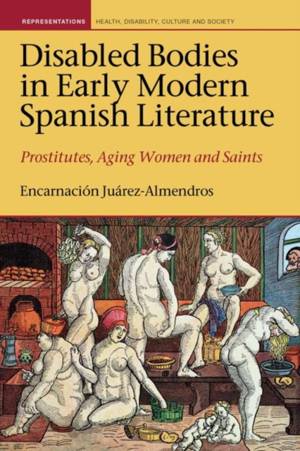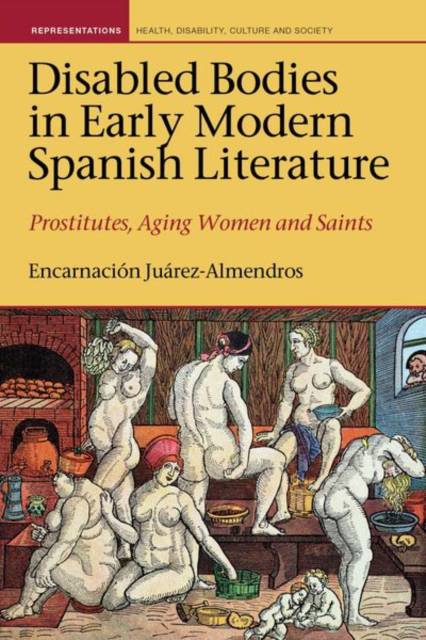
- Retrait gratuit dans votre magasin Club
- 7.000.000 titres dans notre catalogue
- Payer en toute sécurité
- Toujours un magasin près de chez vous
- Retrait gratuit dans votre magasin Club
- 7.000.0000 titres dans notre catalogue
- Payer en toute sécurité
- Toujours un magasin près de chez vous
Disabled Bodies in Early Modern Spanish Literature
Prostitutes, Aging Women and Saints
Encarnación Juárez-AlmendrosDescription
An Open Access edition of this book is available on the Liverpool University Press website and through Knowledge Unlatched.Disabled Bodies in Early Modern Spanish Literature: Prostitutes, Aging Women and Saints examines the concepts and role of women in selected Spanish discourses and literary texts from the late fifteenth to seventeenth centuries from the perspective of feminist disability theories. This study explores a wide range of Spanish medical, regulatory and moral discourses, illustrating how such texts inherit, reproduce and propagate an amalgam of Western traditional concepts of female embodiment. It goes on to examine concrete representations of deviant female characters, focusing on the figures of syphilitic prostitutes and physically decayed aged women in literary texts such as Celestina, Lozana andaluza and selected works by Cervantes and Quevedo. Finally, an analysis of the personal testimony of Teresa de Avila, a nun suffering neurological disorders, complements the discussion of early modern women's disability. By expanding the meanings of contemporary theories of materiality and the social construction of disability, the book concludes that paradoxically, femininity, bodily afflictions, and mental instability characterized the new literary heroes at the very time Spain was at the apex of its imperial power. Ultimately, as this study shows, the broken female bodies of pre-industrial Spanish literature reveal the cracks in the foundational principles of power and established truths.
Spécifications
Parties prenantes
- Auteur(s) :
- Editeur:
Contenu
- Nombre de pages :
- 216
- Langue:
- Anglais
- Collection :
- Tome:
- n° 7
Caractéristiques
- EAN:
- 9781786940780
- Date de parution :
- 31-12-17
- Format:
- Livre relié
- Format numérique:
- Genaaid
- Dimensions :
- 160 mm x 236 mm
- Poids :
- 453 g

Les avis
Nous publions uniquement les avis qui respectent les conditions requises. Consultez nos conditions pour les avis.






